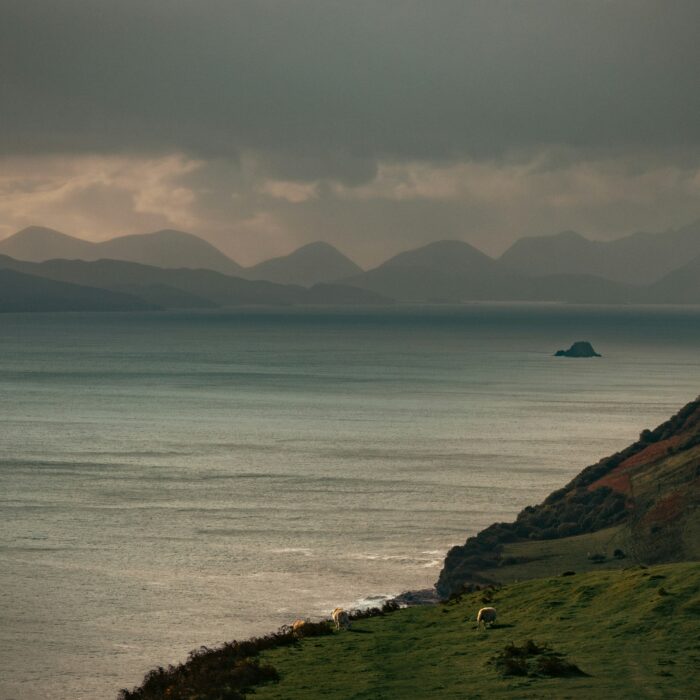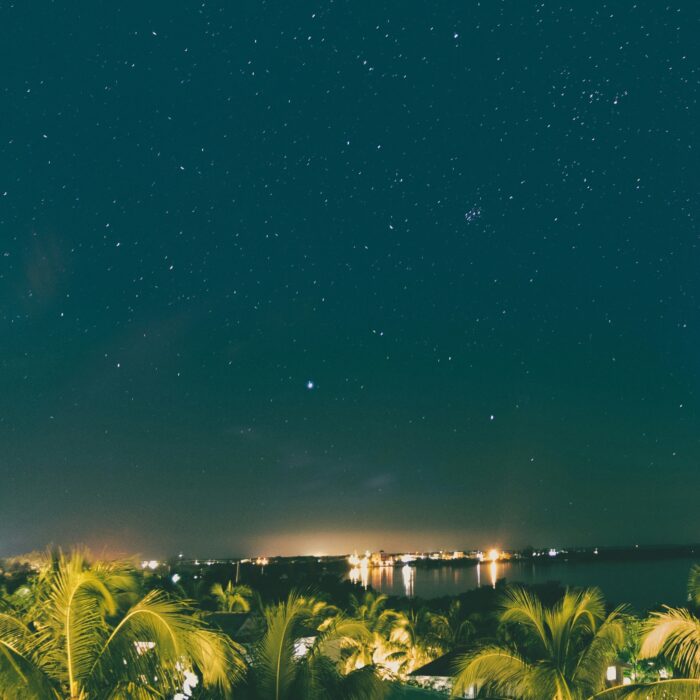You have no items in your cart. Want to get some nice things?
Go shopping
The Dark Side of Camping is just north of Milton Keynes, where the land is still flat and the distant thrum of the M1 can be heard from the bottom of an empty field. In a last-minute escape from London I found myself here, in a surreal situation with my cousin, my flatmate, and a car full of booze. The plan to go camping had been made weeks earlier in a pub, and it had lost enough momentum such that nothing was organised, but not enough to prevent us from going. It was an enactment of “always do sober what you said you’d do drunk”, as we stalled in the Friday rush hour, and then drove through England’s more sinister towns in search of a patch of grass my cousin had booked online.
There was a terrifying experience of entering a local pub in search of a loo before we fled about a mile away to a shallow slope of wet grass and cows. It was cold. The farmer, to whom the land belonged to, seemed suspicious, but more pleased that we were occupying his spare field for the night. None of us said anything, but we wondered, why were we here erecting our tents over a carpet of flies? My cousin’s “fun-file”—print outs of local tourist spots—had been made redundant by the drive alone. The prospect of the weekend seemed bleak. It was as if we were escaping the blitz, with our supplies and “nice” clothes and the lingering freak-out of losing the city to a sheep field. “Even in a time of elephantine vanity and greed, one never has to look far to see the campfires of gentle people,” said the broadcaster Garrison Keillor in 1942. Through a telescope into the future, he may have seen with horror our candle-lit makeshift bar, propped up on the plastic case of our cooker, go up in flames. The cows over the fence in the next field saw it, their intimidating, stolid gaze on us; and we saw them, through my telescope, as there was nothing else but sulphur singed clouds overhead and a ditch and a hedge…
Great people, “when faced with a decision, take the outrageous one, not knowing where it might lead them, but knowing that the safe decision has danger written all over it,” wrote Paul Arden, in his bestselling book Whatever You Think, Think the Opposite. I told this to my cousin the next morning as the three of us, hungover and jaded, bombed into a roman market town for breakfast.
“Then I think we should go to Skegness,” he said, frazzled but determined behind the wheel. My flatmate didn’t understand, so my cousin explained that it’s a flat coastal area that peaked in the 1930s and has slipped into Grimsville ever since. She was up for it, but two of my cousin’s friends would be arriving at a nearby station in a few hours. “Agnes has come all the way from Switzerland for this,” my cousin said the night before, sozzled on the wet grass, “to freeze at the bottom of a field with a sack of booze.”
There was no purpose to our trip, no realised destination. We sat with our coffees in the charred remains of a graveyard in town and tried to conjure one, but nothing came to mind. My cousin’s enthusiasm was now a thin veil, and later, he was unable to mask his disappointment and the regret he felt as he passed out in the back seat of the car. We had gone on holiday by mistake, and the only way out was through a town full of tourists. We sped off in the direction of the Peak District in search of something easier on the eye and for a high wind to clear our heads, cruising with the roof down and my flatmate freezing up in the back seat. We realised that it may not be about the camping experience itself but where you camp, that it may be essential, when camping for no reason, to do it amongst beauty. The Peak District was our tonic: the air was cleaner, the people nicer, and a little campsite was always waiting to be discovered in the depths of every valley.
Sometime later, we were back in London, with more booze than we had left with. We had been away for three days.
Did we have fun? God might have made one damp planet, but I think it went mouldy, and maybe it’s safer to pretend it’s not there. As Monty so cheerfully puts it in Withnail and I, “Come on lads, let’s go home. The sky’s beginning to bruise, night must fall and we shall be forced to camp.” And no one wants that.

Juliette Golding
Juliette Golding studied at Cheltenham Ladies' College and The University of Manchester before going on to study creative writing in San Francisco. She moved to London as a script writer and marketing executive and is in the process of completing a book of short stories. She currently lives in East London.





This is a really great read. I hope to see more of Juliette’s prose on here soon.